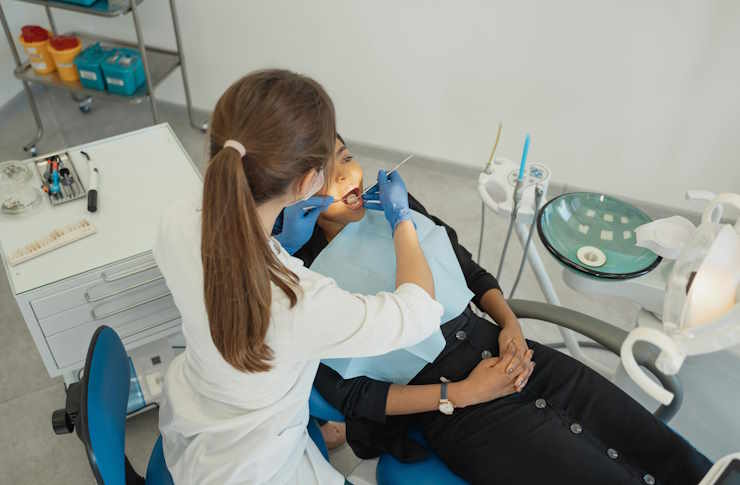Unlock Your Perfect Smile: How Cosmetic Dentistry Grants Can Make It budget friendly
Dental implants can transform lives, but their cost often puts them out of reach for many. Fortunately, dental implant grants offer a ray of hope. This comprehensive guide explores how these grants work, who qualifies, and how to access this life-changing opportunity.

What are dental implant grants and how do they work?
Dental implant grants are financial assistance programs designed to help individuals afford the cost of dental implants. These grants are typically offered by non-profit organizations, dental schools, or government agencies. Unlike loans, grants do not need to be repaid, making them an attractive option for those struggling with the high costs of dental implants.
Grants may cover a portion or, in some cases, the entire cost of the dental implant procedure. The amount awarded varies depending on the organization and the individual’s financial situation. Some grants may also include additional dental work necessary for successful implant placement.
Who is eligible for cosmetic dentistry grants?
Eligibility for cosmetic dentistry grants, including those for dental implants, varies depending on the organization offering the grant. However, some common criteria include:
- Financial need: Most grants are designed for individuals who cannot afford the procedure on their own.
- Medical necessity: Some grants require that the dental implants are medically necessary, not purely cosmetic.
- Age restrictions: Certain grants may be available only to seniors or specific age groups.
- Geographic location: Some grants are limited to residents of particular states or regions.
- Dental health status: Applicants may need to demonstrate good overall oral health and commitment to dental hygiene.
It’s important to note that eligibility requirements can be quite specific, so carefully review each grant’s criteria before applying.
How can I find dental implant grants in my area?
Finding dental implant grants requires some research, but several resources can help:
- Cosmetic Dentistry Grants Program: This national program offers partial grants for various cosmetic dental procedures, including implants.
- Dental schools: Many dental schools offer reduced-cost implants or grants to qualified patients.
- Local dental societies: Contact your state or local dental society for information on available grants or low-cost options.
- Non-profit organizations: Some non-profits focus on providing dental care to those in need and may offer grants.
- Government programs: Check with your state’s health department for any available dental assistance programs.
Start by searching online for “dental implant grants” plus your city or state name. Also, consult with local dentists who may be aware of grant opportunities in your area.
What is the application process for cosmetic dentistry grants?
The application process for cosmetic dentistry grants typically involves several steps:
- Initial screening: Most programs start with a preliminary application to determine basic eligibility.
- Detailed application: If you pass the initial screening, you’ll need to provide more comprehensive information about your financial situation and dental needs.
- Dental evaluation: Many grants require a professional dental examination to assess your oral health and confirm the need for implants.
- Financial documentation: You may need to provide proof of income, tax returns, and other financial documents.
- Interview: Some programs conduct interviews to further assess eligibility and need.
- Decision: After reviewing your application, the organization will decide whether to award the grant and for what amount.
Remember that the process can be competitive, and not all applicants will receive grants. It’s wise to apply to multiple programs to increase your chances of success.
What are the benefits and limitations of cosmetic dentistry grants?
Cosmetic dentistry grants, particularly for dental implants, offer numerous benefits but also come with some limitations.
Benefits: - Financial assistance for a life-changing procedure - Improved oral health and overall well-being - Boosted self-confidence and quality of life - Access to high-quality dental care that might otherwise be unaffordable
Limitations: - Limited availability and high competition for grants - Partial coverage may still leave significant out-of-pocket expenses - Long waiting periods due to high demand - Restrictions on choice of dental providers - Potential for additional costs not covered by the grant
While grants can be a fantastic opportunity, it’s crucial to understand both their advantages and limitations before pursuing this option.
What are the typical costs of dental implants and available grant amounts?
Understanding the costs of dental implants and potential grant amounts is crucial for planning your dental care. Here’s a breakdown of typical expenses and grant opportunities:
| Procedure | Average Cost | Potential Grant Amount |
|---|---|---|
| Single Tooth Implant | $3,000 - $4,500 | $1,000 - $3,000 |
| Full Mouth Implants | $20,000 - $45,000 | $5,000 - $15,000 |
| All-on-4 Implants | $15,000 - $30,000 per arch | $3,000 - $10,000 per arch |
Prices, rates, or cost estimates mentioned in this article are based on the latest available information but may change over time. Independent research is advised before making financial decisions.
It’s important to note that grant amounts can vary significantly depending on the organization and available funding. Some grants may cover a percentage of the total cost, while others offer a fixed amount. Additionally, many grants require the patient to contribute a portion of the cost.
When applying for grants, be prepared to explore multiple options and potentially combine different funding sources to cover the full cost of your dental implants. Some patients find success in utilizing a combination of grants, payment plans, and personal savings to afford their dental implant procedure.
Remember that while the cost of dental implants can be substantial, the long-term benefits often outweigh the initial investment. Dental implants can improve oral health, enhance quality of life, and potentially save money on future dental work by preventing further tooth loss and bone deterioration.
The shared information of this article is up-to-date as of the publishing date. For more up-to-date information, please conduct your own research.
This article is for informational purposes only and should not be considered medical advice. Please consult a qualified healthcare professional for personalized guidance and treatment.




